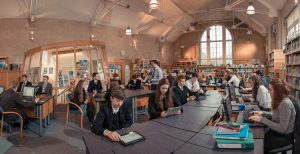The BSA has the twin objectives of promoting boarding education and developing quality boarding through high standards of pastoral care and boarding facilities
Today’s high-quality boarding schools provide their pupils with a safe and challenging environment, where communication with home is easy, and boarding facilities and pastoral care are of the highest order. The BSA and its members are committed to this vision for boarding.
A school can join the BSA if it is a member of one of the constituent associations of the Independent Schools Council or, for state-maintained boarding schools, a member of SBF (State Boarding Forum). These two bodies require member schools to be regularly inspected by the Independent Schools Inspectorate (ISI) for education and boarding if the school is in membership of the ISC, or by Ofsted for both education and boarding if it is a state boarding school or academy in England. Parents and prospective pupils choosing a boarding school can therefore be assured that BSA-member schools are committed to providing the best possible boarding environment for their pupils, and the evidence is in the independent inspection reports.
Relationship with Government
The BSA is in regular communication with the Department for Education (DfE) and local governments in Scotland, Wales and Northern Ireland on all boarding matters. The Children Act (1989) requires boarding schools to conform to national legislation embodied in the National Minimum Standards for Boarding (revised 2013). Promotion of this legislation and the key area training required to carry it out are matters on which the DfE and the BSA have worked closely together. The BSA has also liaised with Ofsted on the inspection of boarding schools under the Care Standards Act. Ofsted reported on boarding at individual schools in England, including ISC schools, until the end of August 2011, and these reports can be viewed at www.ofsted.gov.uk. On 1 September 2011, boarding inspection at ISC independent schools passed to the ISI, with Ofsted continuing to inspect boarding at state schools. The BSA continues to work with both to promote excellence in boarding.
Professional development for boarding
The National Minimum Standards (revised 2013) require staff looking after boarders to have access to high-quality professional development, so the programme of training for boarding staff of BSA member schools was initially supported and sponsored by the DfE. The Utting Report, The Safeguards for Children Living Away from Home, highlighted the importance of developing a ‘policy, practice and training for services for children who live away from home’. It focused on the right of parents to expect that staff looking after children are competent to do so, and indicated the responsibility of central government to secure consistent national standards in promoting the welfare of children away from home.
As part of its training programme, the BSA organises seven residential conferences a year for heads of boarding schools, heads of preparatory boarding schools, deputy heads, housemasters and housemistresses, matrons and medical staff, and marketing/admissions staff in state boarding schools, where further training takes place in formal sessions and in sharing good practice.
The BSA provides the following range of training and information:
• Professional university-accredited qualifications in boarding practice for both teaching and non-teaching staff in boarding schools. The BSA has been responsible for the development of Certificates of Professional Practice in Boarding Education. These Certificates, involving at least two years’ study and formal written work, are awarded by Roehampton University.
• A diploma programme of advanced study for those in leadership positions in boarding.
• An annual rolling programme of more than 50 day seminars on current boarding legislation and good practice, such as child protection and understanding the needs of overseas boarders.
The value of the training programme is confirmed by the fact that, in the last five years, over 5,000 boarding staff have received BSA training. The Department for Education has invested substantially in the training of state boarding staff. The full list of BSA publications in support of the best boarding practice can
be found on the Association’s website under ‘Publications’.
State-maintained boarding schools
State-maintained boarding schools provide high-quality boarding at the lowest possible cost. Admission to state boarding schools in the UK is limited to children who are nationals of the UK and are eligible to hold a full UK passport, or those who are nationals of other European Economic Area (EEA) countries or those who have the right of residence in the UK.
There are 34 state boarding schools in the UK – most are for pupils aged 11-18; one offers primary boarding as well as secondary boarding. Most of the schools are co-educational, but some are boys’ schools.
Help and advice for parents
So how can the BSA further help parents when they are choosing a boarding school? The BSA website provides links to individual school websites, and parents should use these to explore and contact schools that interest them. Parents are invited to contact the Director to discuss general issues, such as why boarding might benefit your child and to find out more about the 500+ BSA member schools, although the BSA cannot advise on particular choices of school. Parents are also invited to contact the Director to request three useful BSA publications: The Parents’ Guide to Maintained Boarding Schools, Being a Boarder and Parenting the Boarder.
Boarding Schools’ Association
60 St Martin’s Lane, London, WC2N 4JS
Tel: +44 (0)20 7798 1580
Web: www.boarding.org.uk

